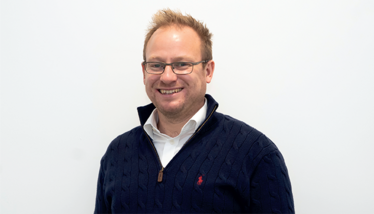Modernizing Education for Medicine Makers
Why virtual reality represents the new standard for healthcare and pharma manufacturing training
Ivan Wall | | 2 min read | Opinion

Academic institutions once dependent on textbooks is now face-to-face with the demands of digitalization; medical and engineering education is at a crossroads. Yet changing for the sake of change is never welcome in science – there must be notable benefits.
Though VR is not a panacea, it is a powerful tool with defined advantages – and its implementation is growing worldwide. VR allows trainees to become fully immersed in their training environment, so they can learn without interruption and gain relevant experience – even when they’re in a non-classified training classroom. And with modern VR technology, we can simulate environments and situations that venture beyond the geographical constraints of typical facilities.
It would be impractical (i.e., a logistical nightmare) to take classrooms full of students into GMP cleanrooms. But using VR, we can show them how GMP cleanrooms operate and introduce them to the tasks of a medicine manufacturing professional – all risk free, easy, and at low cost (compared with allowing inexperienced individuals to “play” with single use components, for example).
Another advantage relates to time. We know from the use of VR in the medical field that surgeons can train 570 percent faster when supplementing conventional training with VR. With our own software, we can train operators to follow protocols for a 2-week viral vector production process in the space of two hours. By removing all of the “hold” times or incubation periods in a process, we can drastically increase efficiency. We also remove waiting times associated with scheduling or waiting for consumables to arrive…
Right now, there is a notable shortage of skilled workers in medicine manufacturing; to build a talent pipeline to address the problem, we must inspire youngsters to enter STEM careers. I’d argue that the VR method is particularly compatible with early career researchers; they’ve grown up alongside advanced technology, so working with a VR system is almost second nature.
The landscape of healthcare and engineering education to support the medicines sector has evolved using traditional teaching methods, with current methods, involving lectures and then recall in a written exam, not unlike those used a century ago. We are over-reliant on an outdated system. VR’s tangible benefits for trainees, educators, and companies represent a genuine update – one that reflects the impressive progress we’ve seen in modern therapies. VR ushers in an evolution in the way we educate today’s professionals – all while reducing costs, saving time, and increasing engagement with the emerging talent that will – one day – drive this field forward.
Professor of Regenerative Medicine at the University of Birmingham, Director of the Centre for Advanced Therapies Manufacturing Training, and Director of FourPlus – an immersive mixed and virtual reality software company for life sciences training.



















